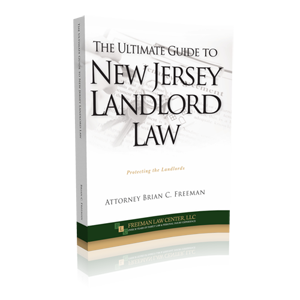
Eviction Notice
Do you need legal help?
Our Experienced Lawyers Are Here For You
At Freeman Law Center, LLC, we work in a variety of legal fields on behalf of the people and businesses throughout northern New Jersey.
![]()
Mr. Freeman represented me in a child custody case during the beginning of difficult times of Covid. As a father, I was at first worried about what the outcome of the case Maybe. However, Mr. Freeman assured me he would get me my rights.
Thanks to knowledgeable Mr. Freeman and his professional staff, I was granted my rights. Cindy & Mr. Freeman were able to answer all my questions without delay. Highly recommend!
SAM BEAST
![]()
I was fortunate to retain Brian to represent me in my divorce case. He was aggressive in court and fought hard for me to protect my relationship with my daughters. This was a bitter and nasty fight but he was more than up to the task. In the end I felt like I won the war.
In my opinion he is a great lawyer and very compassionate, I would recommend to anyone who needs a divorce lawyer.
CLIENT
![]()
If you need a great family lawyer I recommend the freeman law center without hesitation. My life was a complete shambles because of the divorce I had to go through I didn’t know that i could feel so bad. The efforts that I received from Brian was outstanding and I can’t put in words how much I appreciated the way I was treated by his staff.
Their slogan “Quality and Commitment” was not just words it was action.
RON THATCHER

Download Our Free Landlord Guide
Enter Your Information Below

Ready to post an eviction notice for your problem tenant? Watch this video to learn how much time you need, and call our Jersey City landlord tenant lawyers
Question:
How Much Notice is Required Prior to Evicting a Tenant?Answer:
Contact our experienced New Jersey Landlord/Tenant lawyers today for a free consultation and case evaluation.
Like us on Facebook









